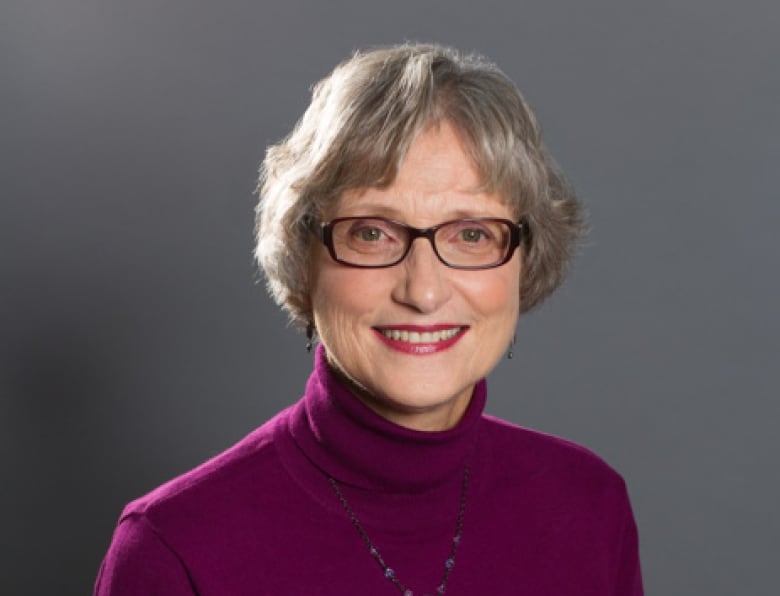With high hopes and low expectations Canadas minor political parties are fighting on
In an abbreviated campaign that is testing even Canada's more established political parties, Liz White is logging long hours recruiting and training candidates to contest ridings she knows they can't win.
"It's very clear that parties like us, smaller parties, do not really have an opportunity to send people to Ottawa," she said from her office in Toronto.
White is the leader of the Animal Protection Party of Canada, which, like many of the country's 20 registered political parties, has little name recognition and very little chance of winning seats on Sept. 20.
The party â€" known at the time as Animal Alliance â€" picked up 4,408 votes nationwide in the 2019 federal election, about 0.02 per cent of the popular vote.
The Animal Protection Party still intends to put candidates on the ballot in at least a dozen ridings to advocate for improved animal welfare laws and stronger measures to address climate change.
"The other parties, as far as I can tell … are not talking in any serious way about what the crisis is and what we need to do to begin to deal with it," White said.
 Animal Protection Party Leader Elizabeth White said it will be nearly impossible for her party to win seats in Parliament without significant electoral reform. (Animal Protection Party of Canada)
Animal Protection Party Leader Elizabeth White said it will be nearly impossible for her party to win seats in Parliament without significant electoral reform. (Animal Protection Party of Canada) Despite the practically insurmountable odds facing Canada's minor political parties, their leaders and members express an unwavering commitment to the political process.
"It is an all-consuming task," said Randy Joy, leader of the Veterans Coalition Party, which operates under the motto "truth, duty and honour."
The party received 6,300 votes and fielded 25 candidates in the 2019 election â€" its first time on the ballot.
Joy said he wants to expand to 40 candidates for the coming election, though he too acknowledges that winning seats is virtually impossible.
"For us, success is maximizing the amount of candidates we can run and getting the party's name known," Joy said from his home in Glace Bay, N.S.
A wide spectrum of ideologiesJust 64,183 Canadians voted for minor parties in 2019 that did not win seats in Parliament â€" a group of voters roughly equivalent in size to the population of Medicine Hat, Alta.
(That figure does not include Maxime Bernier's People's Party of Canada, which received 294,093 votes and had candidates in the vast majority of ridings, despite failing to win a seat.)
Some lesser-known federal parties include the flag bearers for widely recognized but less popular political movements in Canada, such as the Communist Party and Libertarian Party.
Elizabeth Rowley, leader of the Communist Party, said her group is determined to keep fighting in elections and will run candidates in 26 ridings.
The Communist Party's 2021 platform calls for a "people's recovery from a capitalist crisis" and includes a plan to build one million affordable homes and standardize 32-hour work weeks.
"If you want more of the same, keep voting the way you're voting in the last election," Rowley said from the party's office in Vancouver, B.C.
 Veterans Coalition Party Leader Randy Joy holds a copy of his party's election platform. (Randy Joy/Submitted)
Veterans Coalition Party Leader Randy Joy holds a copy of his party's election platform. (Randy Joy/Submitted) Others minor parties â€" such as the Christian Heritage Party and Marijuana Party â€" are focused on representing special interests or specific causes.
The satirical Rhinoceros Party operates in a different sphere entirely. Its platform includes plans to allow advertising in Parliament and to redraw maps so all provinces are rectangular in shape. The party received 9,538 votes in 2019.
You can see the full list of registered federal parties here.
Held back by first-past-the-postThe nature of Canada's Westminster-style, first-past-the post electoral system means that parties registering tiny fractions of the popular vote have virtually no chance of sending MPs to Parliament.
The leaders of minor parties say their long-term viability likely depends on Canada someday adopting a proportional representation system â€" one that would send MPs to Ottawa based, at least in part, on their parties' shares of the popular vote.
The Liberals promised electoral reform while campaigning in 2015, but dropped the idea after they were elected.
Steven Weldon, a political science professor at Simon Fraser University, said minor political parties will remain stuck on the sidelines without electoral reform.
"As far as them having an independent voice, without a low-threshold proportional representation system, that's not really realistic in Canadian politics," Weldon said.
White points to the house of representatives in the Netherlands as an appealing alternative to Canada's system. Her party's Dutch equivalent, The Party for the Animals, holds six of the 150 seats in the Netherlands' lower house.
The system of proportional representation used in the Netherlands also opens opportunities for groups such as the far-right Party for Freedom, a nationalist outfit with hard line anti-immigration and anti-Islam positions. That party holds 17 seats â€" the most of any party in the government's opposition.
0 Response to "With high hopes and low expectations Canadas minor political parties are fighting on"
Post a Comment